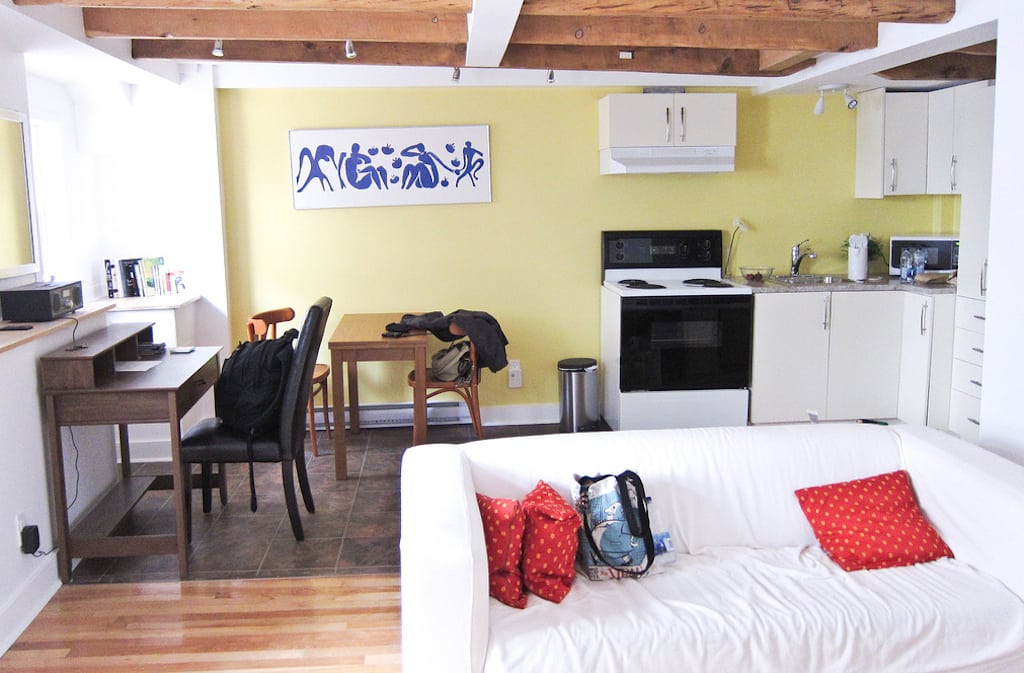Skift Take
Airbnb is often willing to look the other way when it comes to unlicensed listings until local governments or tragic events force its hand.
Airbnb is removing listings that haven’t received a permit from the government of Quebec following a fatal fire in Montreal in a building that was located in a section of the city where authorities barred short-term rentals.
Authorities removed four bodies from the historic building in Old Montreal, and three people were missing. Some of the victims had been Airbnb renters in the building.
Airbnb wrote a letter to the province’s tourism minister vowing to remove listings that didn’t have governmental permits, require new listings to provide a permit number, and give the Quebec government access to an Airbnb portal so provincial authorities might better enforce local regulations.
Policymakers at Airbnb or other platforms face a mixed bag of regulatory and enforcement activities in assorted geographies around the world.
Thus, Airbnb is now removing illegal listings in Quebec after a headline-grabbing fatal incident. In Palma, the capital of the Balearic Islands in Spain, the holiday destination had nearly 2,000 rentals listed on Airbnb, vastly exceeding the roughly 620 permits, according to a published report.
“For years, Airbnb has partnered with governments to legitimize home sharing and support compliance, including by launching the City Portal tool for governments, and we continue to be responsive and work in good faith to ensure new and existing regulations work for all stakeholders,” said an Airbnb spokesperson.
But without the Montreal-like flashpoint, in the Balearic Islands, it is very possible to stay at these illegal rentals.
Meanwhile, in New York City a July deadline looms for when both hosts and platforms would be fined for stays where the host is not present in the unit.
Balearic Islands Officials Push to Limit Airbnb
Tourism and finance officials traveled to Brussels a little more than a year ago to lobby European Union officials to bar stays at illegal rentals in the Balearic Islands.
Roman Townsend, managing director of travel technology public relations firm Belvera Partners, which is based in the Balearic Islands, thinks politics is at play as the incumbent socialist government wants to appeal to a segment of the populace that believes that mass tourism is destroying the islands.
Measures under consideration, Townsend said, go beyond curbing Airbnb, such as barring non-residents from purchasing property in Mallorca and putting public money to work to purchase three-star hotels with the aim of halting visits from low-end or price-sensitive tourists.
“Nonetheless we should take what’s being said over the coming weeks with a pinch of salt, as the regional president has had eight years to introduce the measures talked of now but somehow has not done so,” Townsend said. “They´ll likely tone this down post-elections as they almost certainly will have to govern as part of a coalition. And if the right wing Partido Popular government wins then none of this is very likely to happen, not least as they’re likely to need to govern via a coalition pact with the even more right wing party Vox.”
Carlos Cendra, sales and marketing director for travel intelligence provider Mabrian, which is based in the Balearic Islands, said destination managers need to push to limit the “non-hotel tourist offer in order to avoid the problems derived from increases in rental prices that then negatively affect local residents. But on the other hand, they must also favor the opening of the tourist accommodation market so that small resident investors can also take advantage of tourism by renting out their second properties. Curiously, both approaches are part a sustainable tourism strategy for destinations, just in opposite ways — making this a tricky balance.”
July Deadline Looms in New York City
Meanwhile, New York City’s tough short-term rental regulations are slated to be implemented in July, when both hosts and platforms such as Airbnb, Booking.com and Vrbo, would be fined for any instances of noncompliance.
New York City requires hosts to be present in the same unit during the stay, and prohibits internal door locks within the unit.
Depending on how stringently the law winds up getting enforced — and hosts and platforms have dodged such mandates in the past — this would mean that a host who took a weekend getaway, week-long vacation or owned a second or third home, couldn’t put their properties on the short-term rental market under these circumstances.
Starting at an unspecified date in July, the City would levy $1,500 fines per infraction against short-term rental platforms that take illegal bookings so they would need to verify the host is properly registered with the city.
The City is in the process of creating a verification tool for short-term rental platforms, and they don’t have to begin verifying hosts until July.
Note: This story has been updated to include an Airbnb comment.
Dwell Newsletter
Get breaking news, analysis and data from the week’s most important stories about short-term rentals, vacation rentals, housing, and real estate.
Have a confidential tip for Skift? Get in touch
Photo credit: An Airbnb listing in Montreal. Airbnb is removing unlicensed listings in Quebec following a fatal fire that found some Airbnb renters as victims. Jennifer Yin / Flickr.com
